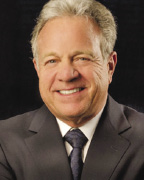Boston Properties has recognized the real estate potential Kendall Sq. holds, and is among several developers who have proposed to expand this fruitful Cambridge neighborhood. The life science rental rates in Greater Boston are reportedly the most expensive in the United States, and Kendall Sq.'s rent per s/f currently outperforms the rest of the urban Boston market. Similar to the recent growth of the Seaport District into a startup hub and restaurant mecca, Kendall Sq. could be the next neighborhood to take on a full transformation in Boston's real estate boom. In order for the transformation of Kendall Sq. to move forward, additional zoning must be approved to ensure that the required space is available for the proposed developments. Getting the space approved will require addressing concerns of those against the project and determining whether this development would be beneficial for Kendall Sq. and Greater Boston. While the Cambridge Redevelopment Authority has given the proposed expansion its blessing, apprehensions of those opposed include congestion and traffic, which could provide an opportunity to expand our public transportation system.
Boston Properties is currently working with the city of Cambridge to assess how zoning laws could be changed to allow for an additional 600,000 s/f of office space and 400,000 s/f of residential space. While these proposed changes have not been specified, they are expected to address allotted amounts of green space and height restrictions, as current zoning laws prohibit the construction of buildings taller than 250 feet.
Zoning changes that involve reduced height restrictions would enable expansion of residential and office areas, while leaving room for desirable and aesthetically appealing green space. Somerville recently outlined the value green space is having on the mental and physical health of its residents, and proposed more green spaces and rooftop gardens.
This potential development speaks to two trends: an expanded presence of life science and technology companies in the area, as well as an overall real estate movement that emphasizes a walking-based urban lifestyle. These preferences could continue to shape Boston's business and real estate landscapes as companies continue to move to Kendall square, bringing more workers who desire a lifestyle where their office, school, grocery store and weekend activities are accessible via walking or public transportation.
Aside from the qualities that separate Kendall Sq. from other Boston neighborhoods, young professionals have sparked a real estate trend as they take walkability into consideration when choosing where to live. Easy and environmentally-friendly access to work, grocery stores and entertainment is the key to attracting and retaining millennial employees, which are expected to comprise 50% of the workforce by 2020.
In fact, despite rumors that they would move to the Innovation District, Google recently expanded its offices in Kendall Sq. One Google employee was quoted saying the company never considered leaving in the first place, as the area is expected to remain an innovation hub for the next 20 years. In fact, U.S. rep. Mike Capuano (D-MA) recently called the neighborhood "the middle of the universe," where "the entire economy is based on intellectual capital."
As development plans continue surrounding the Kendall Sq. expansion, I hope both sides take the thriving life science and technology atmosphere, as well as the lifestyle movement into consideration. Leveraging these trends and moving towards a healthier, more accessible lifestyle that attracts millennial workers will only benefit our city in years to come.
Michael Rubin is partner at Posternak Blankstein & Lund, Boston.
Tags:
Kendall Square expansion and the urban lifestyle movement
September 03, 2015 - Owners Developers & Managers
 (1).png)







